The MENA region has become a land of opportunity for construction projects, but those undertaking business there should be aware of certain legal specificities
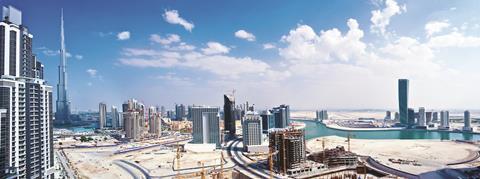
In the past 10 to 15 years, the numbers of regional developments and the size of many have marked out the MENA region as an area of major opportunity and challenge for the construction industry.
In addition to being resource rich, the region is vibrant with an astute population who expects high-quality residential, commercial, transport and healthcare facilities, all in a climatic and geotechnical environment that is generally far removed from any European equivalent. Although the global financial crisis stymied some of these developments, renewed confidence in the region has jumpstarted local spending.
Across the region, more than 100 major projects are due for completion by 2030, costing in excess of $1trn (€746bn). In the next 10 years, annual expenditure on construction projects alone is expected to reach $50bn. The focus is on real estate and infrastructure projects, with energy projects also proliferating.
Notwithstanding recent stock market jitters that coincided with movements in construction company Arabtec’s share value, Dubai appears to have restored investor confidence. Apart from high-profile projects such as the Dubai Expo 2020 and Qatar 2022 World Cup, many other less commonly known but important regional projects are in the pipeline, such as the wider downtown Dubai project, Palm Deira, Al Habtoor City, the ‘Mini World Park’ and ‘Aladdin City’ in Dubai, King Abdullah Economic City in Saudi Arabia and Lusail City in Qatar. Inevitably, international consultants and contractors remain heavily focussed on the region and its high-value and high-quality project work.
Resolving disputes
How are disputes resolved in the region? Amicable negotiation is always the starting point, but it is vital to bear in mind the non-recognition of without prejudice correspondence (where parties to proceedings can ensure that concessions and attempts to settle prior to proceedings are treated off the record, and are therefore not seen by the trial judge or arbitrator) across much of the region. This will affect the undertaking of settlement negotiations, mediation or any other form of alternative dispute resolution.
As to formal process, arbitration remains the most common forum within the construction industry.
In Dubai, in addition to the Dubai International Financial Centre (DIFC)’s own court (the DIFC operates as a separate common law jurisdiction), the DIFC also offers its own London Court of International Arbitration service under the supervision of the DIFC courts, which, like the DIFC court, is now authorised to deal with non-DIFC and DIFC business.
In addition, there is the Dubai International Arbitration Centre (DIAC), which is under the supervisory control of the local Dubai courts.
Abu Dhabi offers the Abu Dhabi Commercial Conciliation and Arbitration Center (ADCCAC), which has seen a substantial increase in referrals following the introduction of new rules in October 2013, bringing Abu Dhabi’s regime more into line with internationally recognised approaches.
As the United Arab Emirates (UAE) has ratified the New York Convention, which allows arbitral awards in one contracting state to be enforced in another, enforcement of awards should be relatively straightforward, although decisions as to award recognition have been conflicting.
In Qatar (which has also ratified the New York Convention), the Qatar Financial Centre (QFC) also operates as a separate common law jurisdiction with its own Civil and Commercial Court, modelled on the Commercial Court in London. It too offers an arbitration option through the QFC Arbitration Regulations. There are other arbitration centres throughout the region, including the Gulf Co-operation Council’s Commercial Arbitration Centre (GCAC) in Bahrain.
Thinking local
The local courts generally conduct business in Arabic, which may be less attractive to western parties, particularly as English remains the recognised business language across much of the region. Local GCC courts generally adopt an inquisitorial approach through appointment on a ‘cab-rank’ basis of an expert (usually an engineer in construction disputes) or a panel of experts to investigate and report. With meetings conducted primarily in Arabic, this can obviously create significant challenges in presenting and conveying a technical case. In our experience, the more that can be presented in diagrammatic form, the less the chance of misunderstanding/mistranslation.
Furthermore, when trying to create a dialogue with court-appointed experts, using construction-trained professionals may be advisable as the experts appreciate being able to discuss technicalities with ‘one of their own’, rather than a lawyer.
Whatever the forum for dispute resolution, the governing law is likely to be local, which, in the Gulf at least, will generally involve a be civil code, based on the Egyptian Civil Code and, in turn, on the French Napoleonic Code.
Saudi Arabia remains an exception, albeit it has a Government Tenders and Procurement Law, which governs the legal position on government contracts.
Elsewhere in the region, with non-common law and frequently very young civil code systems (the current Qatari Civil Code dates from 2004), there is often little precedent raising the usual concerns as to consistency of approach. In Dubai, for instance, appeals from first-instance decisions are reheard in full before the Court of Appeal – the fact that costs awards against unsuccessful parties are usually light means that there is generally no disincentive to appeal. From the Court of Appeal only findings of law can generally be appealed to the highest appellate court, the Court of Cassation; only Court of Cassation judgments are generally treated as binding.
Decennial liability
The operation of decennial liability throughout much of the region means that in the event of a partial or total collapse of a structure, the contractor and any consultant with a design or on-site role are essentially fixed with joint and several “strict” (that is, no fault) liability for 10 years; a liability that can generally not be contracted out of or assigned to subcontractors.
That potential longtail is inevitably a source of concern to construction practitioners and their insurers. That said, in most applicable jurisdictions, there is a separate time limit from the date of discovery or discoverability of any such defect within which a claim under the decennial
regime may be brought. In the UAE, it is three years, and in Jordan it is one year. However, in Saudi Arabia, although decennial liability will arise only under government contracts and is then arguably fault-based and possibly even restricted to the contractors rather than the consultants, there appears to be no similar limitation under the relevant Government Tenders and Procurement Law.
Some professional liability insurers are prepared to agree extended reporting periods of up to 10 years for claims under policies that are operative in the region. However, whether such a policy would respond to a decennial liability type claim will depend on the location and precise nature of the claim. For instance, even if the notification of the claim is within time, many such policies cover only negligence or breach of duty, rather than blanket civil liability and, as such, a no-fault claim may still fall out with policy cover.
As to local court procedure, in addition to the absence of without prejudice exchanges, those used to a UK-type adversarial system will be surprised at the lack of hearings and cross-examinations (submissions in Dubai are generally written) and the lack of formal disclosure/discovery (parties can generally not be compelled to provide documentation).
Cultural perspective
Aside from civil liability exposure, on the commercial front, cash flow and the securing of timely payment are no less a concern here than in any other region. However, situations in which contractual payment dates have not met with strict compliance by local employers require careful commercial consideration.
The Gulf in particular, remains a place in which, from a cultural perspective, formal legal process is still less frequently adopted as a method of dispute resolution than, for instance, in Europe. The taking of such a step may: be viewed as inappropriate; have an adverse effect on concurrent negotiations to resolve the issues; and even damage a wider commercial relationship, so careful consideration should always be given before the escalation of a dispute to proceedings or even the threat of proceedings.
Although the MENA region undoubtedly presents unique opportunities, it is vital that those undertaking business there, whether as an insurer, consultant, contractor or investor, obtain legal advice from practices experienced in the region.
Peter Campion is a construction and insurance partner and head of international business development at DWF LLP
Downloads
MENA final
PDF





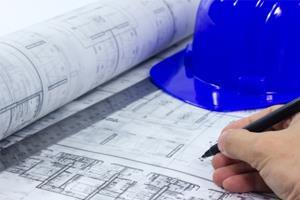

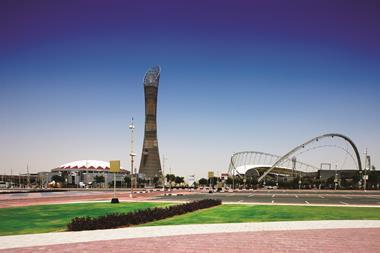
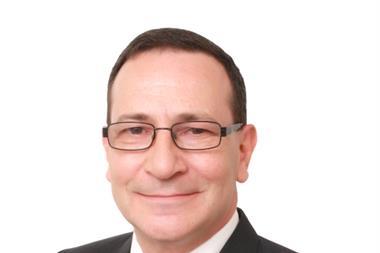
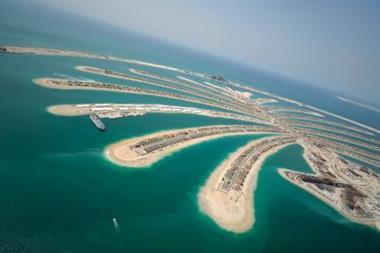










No comments yet